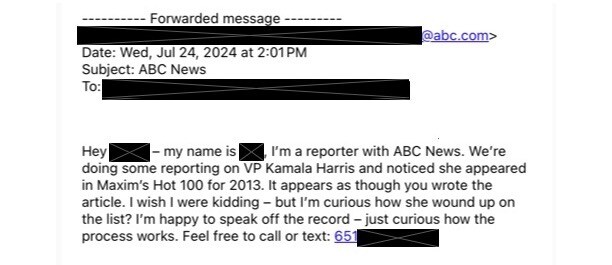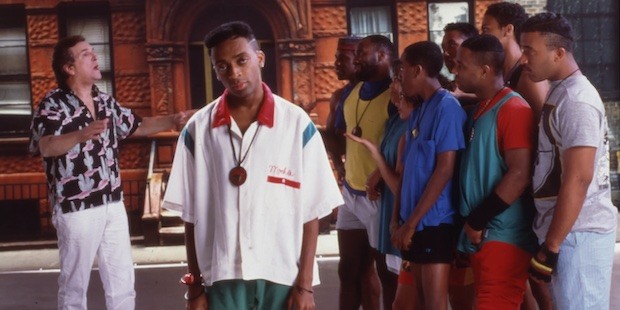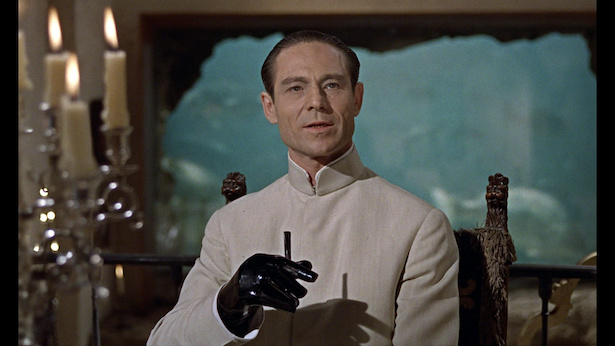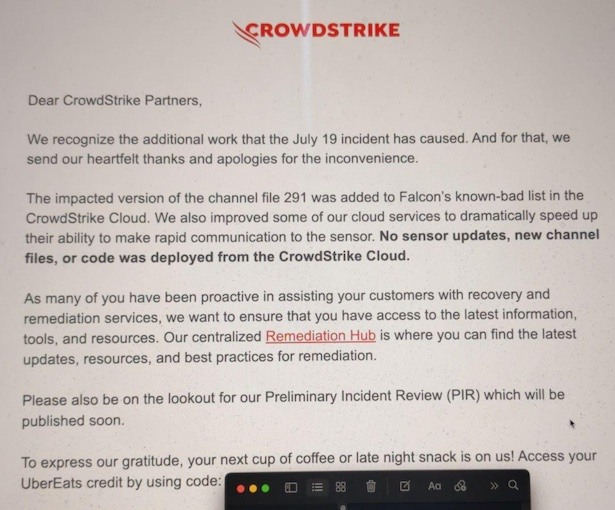Greetings from LHC HQ, where we’re well aware that we’re supposed to be excited for the Olympics, but honestly, this email, sent yesterday to a member of our team (who shall remain nameless), has us far more giddy. 
But enough about us and onto the #content that you’ve been craving…
Drowning in Summer’s Cauldron
Things have a tendency to break down over the summer. Power grids fail. Roads buckle. The Facts of Life reunion collapses and the very fabric of civil society frays.

Even knowing that summer has a predilection for wreaking seasonal havoc, the last few days have offered up two failures of truly historic proportions (at least until the next one drops, tentatively scheduled for early August). In short, it’s fair to say that neither Joe Biden nor CrowdStrike has had The Best Week Ever ©.
Their respective responses to disastrous news cycles tell us a lot about how any public facing company, service, or Whac-A-Mole enthusiast should – and should not – handle a crisis. Because we’re trying to avoid a crisis of our own here at Lighthouse, we’re going to avoid dipping a toe into the spring-loaded mouse trap of political discourse and focus entirely on CrowdStrike.
Despite sounding like a Dr. No side hustle, CrowdStrike promises state-of-the-art cybersecurity for massive enterprise businesses – according to their website the Texas-based company works with 538 of the Fortune 1,000. Or should we say “worked”? Because when you’ve got clients that big, even a little screwup will go a long way.
But this thing went beyond. Crashing 8.5 million Windows devices around the world isn’t just going to result in a few airport terminals teeming with irate passengers – last week’s cascading failure proved catastrophic. Hospitals were forced to cancel surgeries. 911 services in some areas failed to work. Hotel key cards didn’t work, Starbucks mobile ordering didn’t work, even the DMV didn’t work (which, yeah, isn’t it ironic).

And as the world’s tech burned, the fiddling from CrowdStrike President and CEO George Kurtz failed to hit any of the right notes.
Lulu Cheng Meservey, founder of the strategic comms firm Rostra, offered a fairly astute eX-Twitter thread detailing the many ways in which Kurtz’s non-apology failed to hit the marks. We’ll give you the bullet points:
1. Weapons-grade corpo speak
2. The lack of an apology
3. The use of passive voice
4. Dismissing customers’ concerns
5. Offering useless information
And whatever you do, avoid sending out $10 UberEats gift cards to vendors who have been affected by your ineptitude. (Yes, this is real.)

If we wanted to turn these Do-Not-Do’s into action items, as the kids like to say, it might go something like this:
1. Apologize!
2. Explain what happened.
3. Explain how you’re making it right.
4. Apologize again!
5. Send out $100 UberEats gift cards.
Want to succeed while the rest of the world burns? Then just get in touch!
Recent work
- Our incredible web team built a Japanese edition of Topps Ripped, the fastest growing site in the world for collectors and collectibles
